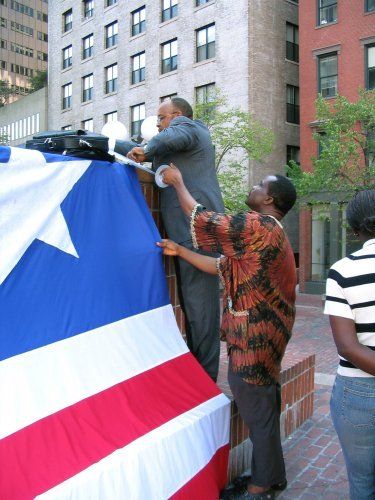By Rev. Torli H. Krua, Free Liberia Movement
On September 22, 1862, President Abraham Lincoln signed the Emancipation Proclamation, declaring freedom, not as justice for all enslaved people across America but only for slaves in Confederate States.
One hundred sixty-three years later, the promise of justice and freedom remains incomplete—not only because slavery persisted in Union states until the 13th Amendment, but because America quietly exiled thousands of its own Black citizens to Liberia under the guise of colonization of “freed slaves,” using federal laws, appropriation of American taxes, the force of the U.S. Navy, and Treaty with sovereign leaders.
No American president and no European monarch has ever publicly confessed, apologized, paid reparations, returned stolen wealth, or embarked on the path of reconciliation for the horrors of slavery and colonization. The silence continues even as these injustices still shape our world.
This week, King Charles III reminded President Donald Trump that “two World Wars, we fought together to defeat the forces of tyranny.” Yet the King—whose monarchy was built on a thousand years of colonization, plunder, and suppression—has never confessed or repaid the victims of empire. Britain and its European allies fought tyranny abroad while brutally enforcing it across Africa and Asia.
America, too, betrayed its own ideals. George Washington, who led victory over King George, signed the first apartheid citizenship law in history—the 1790 Naturalization Act—which restricted U.S. citizenship to “only white persons.” He died leaving more than 600 enslaved people in bondage. Lincoln, remembered as the “Great Emancipator,” limited his proclamation to Confederate states and advanced the colonization of free African American citizens to Liberia, breaking the spirit of the Declaration of Independence and the Massachusetts Constitution of 1780, which declared, “All men are born free and equal.”
The record is clear. In 1821, U.S. Navy Captain Robert Stockton signed a treaty with King Long Peter to establish a settlement in Liberia for “citizens of the United States of America forever.” In 1823, settlers filed their first written complaint, a Petition and Remonstrance to the American Colonization Society, protesting that only white agents governed the colony in violation of their rights as citizens. In 1830, Joseph Shephard led another petition of grievances, demanding equality and self-rule. Their voices were ignored.
The legacy of that betrayal endures. In 2023, Rev. Torli H. Krua petitioned for a U.S. visa waiver for all Liberians; in 2025, Krua sued the Biden Administration for unjust enrichment in the U.S. Embassy visa scheme in millions of dollars taken from Liberians denied visas. The case, Krua v. Mayorkas, was dismissed, but the struggle continues on appeal—not just for Liberians, but for all Americans of color whose rights have been denied since 1790.
As NATO, the European Union, and the United Kingdom beg President Trump to join them in defending Europe, the Free Liberia Movement calls on him to defend justice at home. He must do what no president or king has done in 1,000 years: acknowledge America’s hidden colonization, apologize, return wealth, and begin reconciliation.
The Emancipation Proclamation was only the beginning. True emancipation requires truth-telling, reparations, and justice. Only then can America heal its deep divisions and live up to its founding promise that all men are created equal.
“Righteousness exalts a nation.” On this 163rd anniversary of the Emancipation Proclamation, may America finally choose righteousness over denial.

